|
|
British/English Ships in World War I and II
|
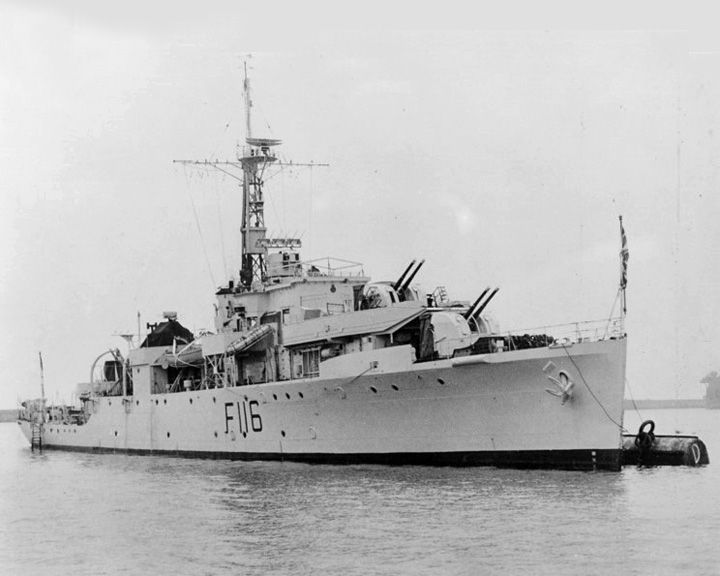 Amethyst, HMS — British modified Black Swan class sloop Subject of the 1957 movie Yangtse Incident, an actual event in April of 1949 during the Chinese Civil War. In the movie, she played herself. During World War II, she was deployed mostly on anti-submarine patrols and escort duties. LAUNCHED: 1943, May 18 → FATE: Scrapped January 19, 1957. |
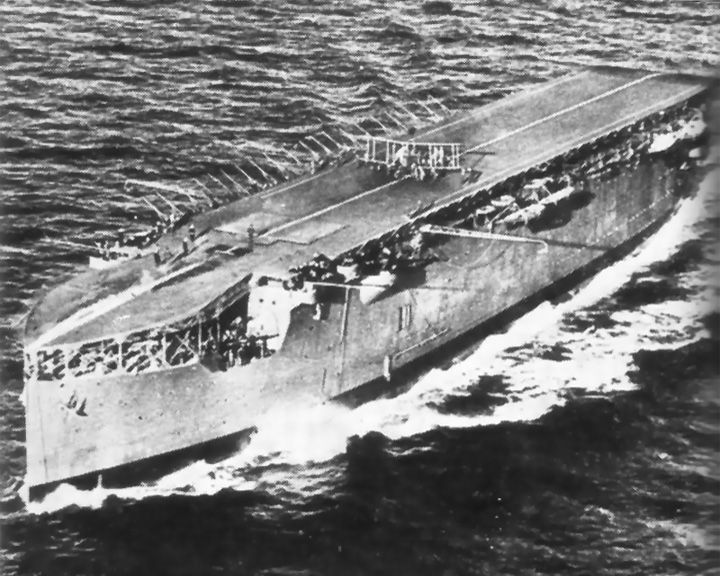 Argus, HMS — British aircraft carrier First Aircraft carrier to have a full flight deck and a lift. She was built from the incomplete Italian ocean liner Conte Rosso and served extensively in both world wars. LAUNCHED: 1917, December 18 → FATE: Scrapped December 1946. |
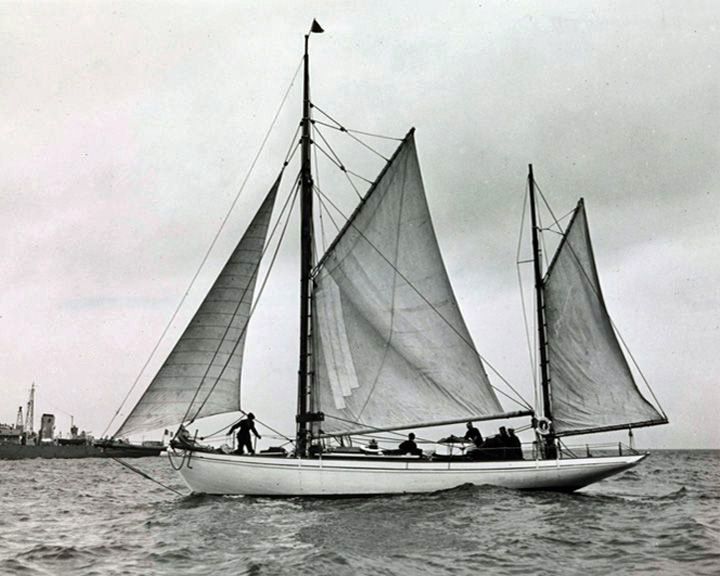 (Another (Another Asgard — British yacht She is most noted for her use in the Howth gun-running of 1914. She was used for sail training by the Irish Navy in the 1960s and as the national sail training vessel from 1969 to 1974. LAUNCHED: 1905 → FATE: The restored Asgard is on permanent display in Collins Barracks, Dublin. |
 Belfast, HMS — British town-class cruiser One of only three surviving bombardment ships which supported the D-Day Normandy Landings in 1944 of World War II, firing probably the first or second salvo. She spent 33 days in support of the D-Day landings and fired over 4,000 6-inch and 1,000 4-inch shells. LAUNCHED: 1938, March 18 → FATE: After much preservation work, she is on exhibit, located on the River Thames next to Tower Bridge at the Port of London. |
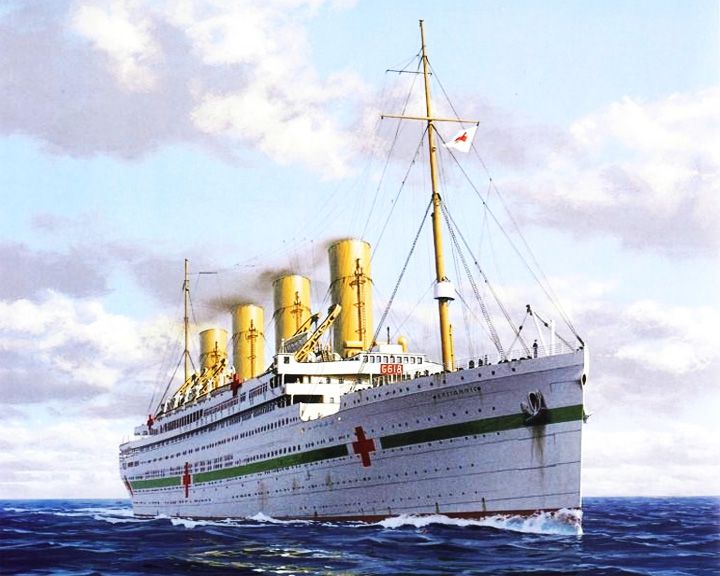 (Another (Another Britannic, HMHS — British ocean liner Largest ship lost during the World War I with the loss of 30 lives. Launched just before the start of the World War I, she was put to use as a hospital ship in 1915. With her loss, SS Bismarck was given to the White Star Line as part of post-war reparations. LAUNCHED: 1914, February 18 → FATE: Struck a mine and sank off the Greek island of Kea November 21, 1916. |
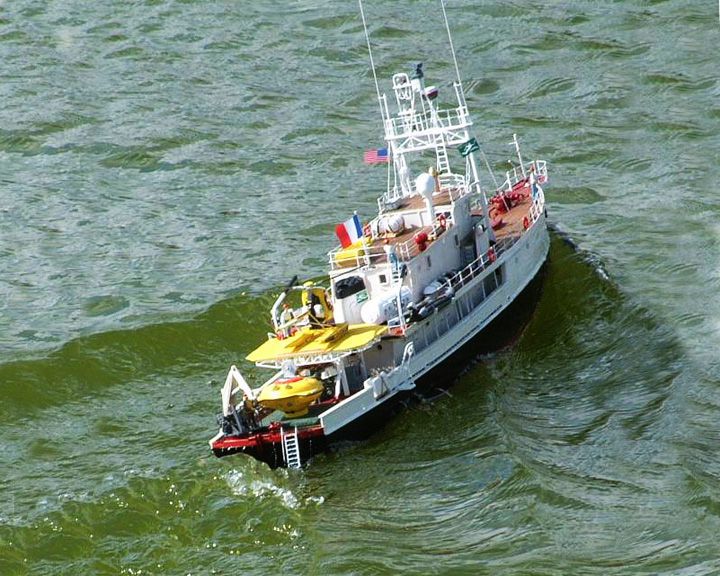 (Another (Another Calypso, RV — American minesweeper built for the British; refitted for research Oceanographer Jacques-Yves Cousteau sailed her as a mobile laboratory for field research. During World War II she served as a minesweeper and carried advanced equipment, including mini submarines. LAUNCHED: 1941, March 21, converted in 1950 → FATE: Sank in 1996, raised, neglected, and now being restored in Brittany. |
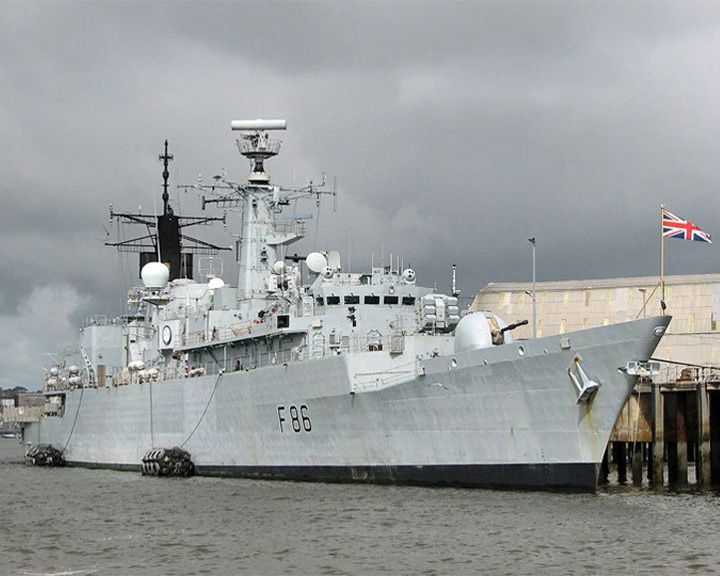 Campbeltown, HMS — American Wickes-class destroyer A most famous ship in the St. Nazaire Raid in 1942 when, packed with explosives, she was rammed into a German port and detonated. The ship and the raid were depicted in the movie Gift Horse. (See Ballantrae, HMS) LAUNCHED: 1919, January 2 as USS Buchanan; given to Britain and renamed in 1940 → FATE: Destroyed March 28, 1942 in the Saint Nazaire Raid, World War II. |
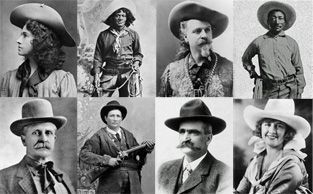
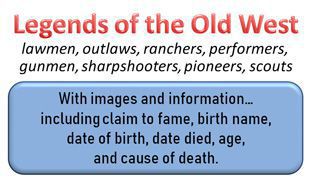
|
Page 2
|
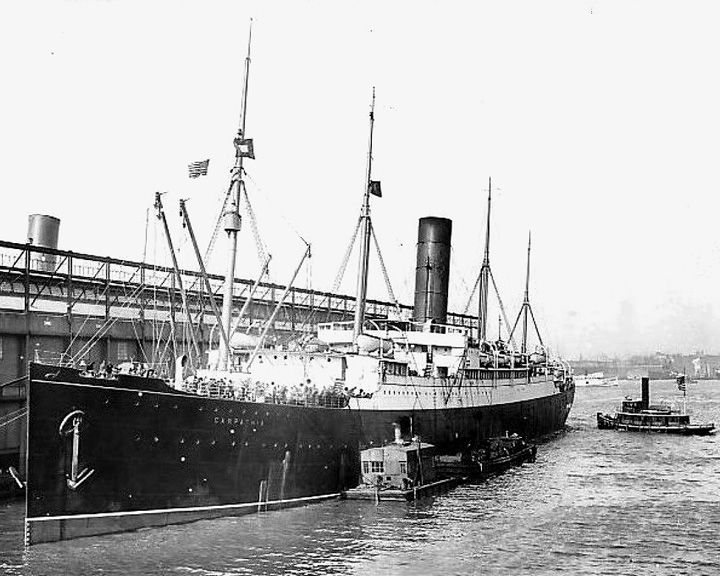 Carpathia — British ocean liner; (Cunard Line passenger steamship) Became famous for rescuing survivors of RMS Titanic on April 15, 1912. After sailing through dangerous ice fields, she arrived at the sinking Titanic at 4:00 am and took on 705 survivors from lifeboats. LAUNCHED: 1902, August 18 → FATE: Sunk in the Atlantic on July 17, 1918 during World War I by a German submarine, the fifth Cunard ship sunk in as many weeks. |
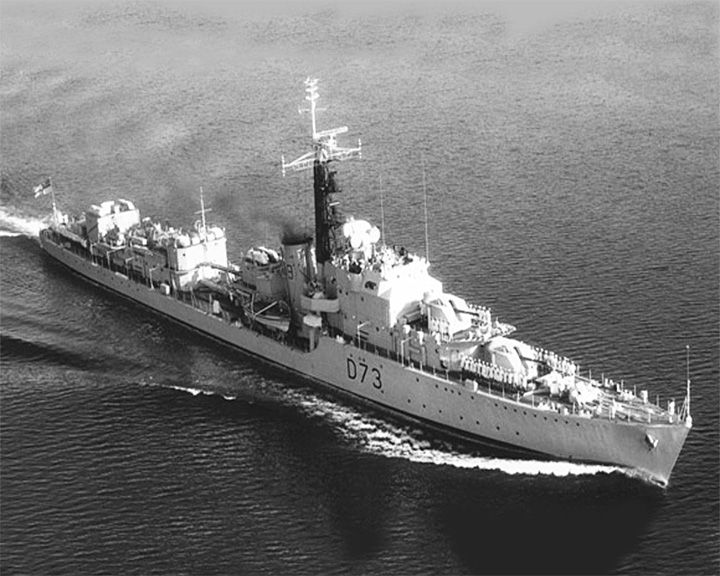 Cavalier, HMS — British C-class Destroyer Because of her high speed, she escorted the RMS Queen Mary and RMS Queen Elizabeth carrying troops across the Atlantic Ocean. In the summer of 2009 the Chatham Historic Dockyard Trust made available accommodation on board the ship for youth groups who wish to stay on board and experience life on board a Royal Naval Destroyer. LAUNCHED: 1944, April 18 → FATE: Preserved as a museum ship since 1998, now at the Chatham Historic Dockyard |
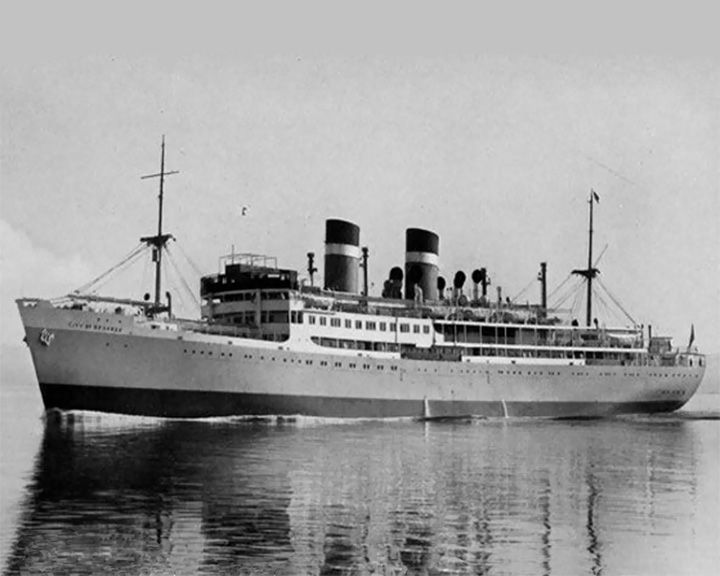 City of Benares, SS — British steam passenger ship The ship taking English evacuated children to Canada torpedoed during World War II by a German submarine. 260 of the 407 people on board were lost including 77 children. The sinking reportedly inspired actress and inventor Hedy Lamarr to develop and patent a system of spread spectrum radio as a means to guide anti-ship torpedoes. LAUNCHED: 1935, August 5 → FATE: Sunk September 18, 1940. |
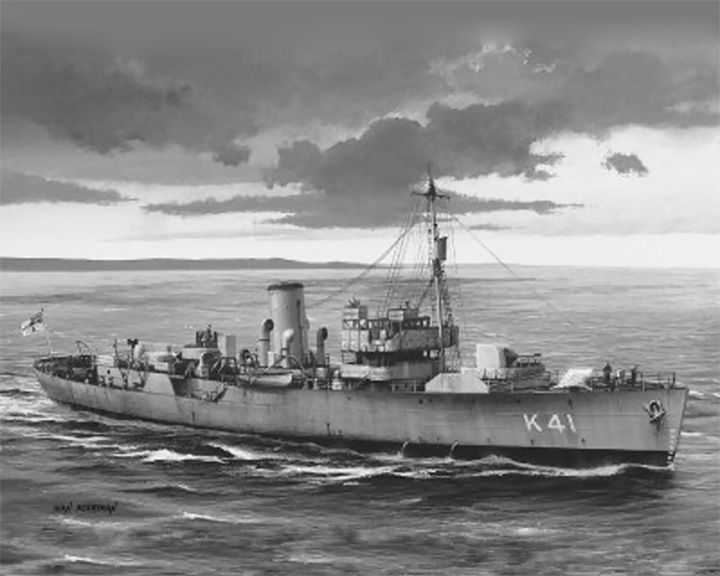 Compass Rose — British Flower-class corvette The ship portrayed in the movie The Cruel Sea, about the conditions in which the Battle of the Atlantic was fought between the Royal Navy and Germany's U-boats. The movie ship was portrayed by the Flower-class corvette HMS Coreopsis. LAUNCHED: 1953 → FATE: Inconclusive. |
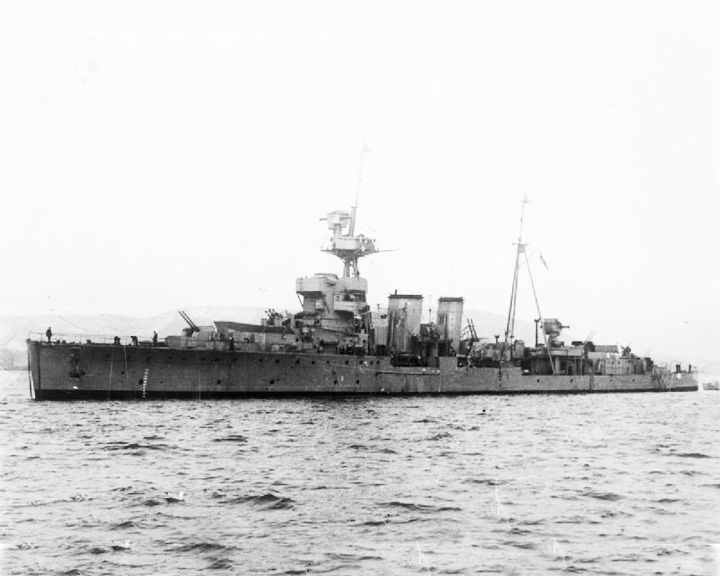 Curacoa, HMS — British light-cruiser Accidentally sliced in half and sunk by the ocean liner RMS Queen Mary, with the loss of 337 men. Her demise came while escorting convoy ships during World War II. Those who witnessed the collision were sworn to secrecy due to national security concerns. LAUNCHED: 1917, May 5 → FATE: Sunk in collision with HMS Queen Mary, 1942, October 2. |
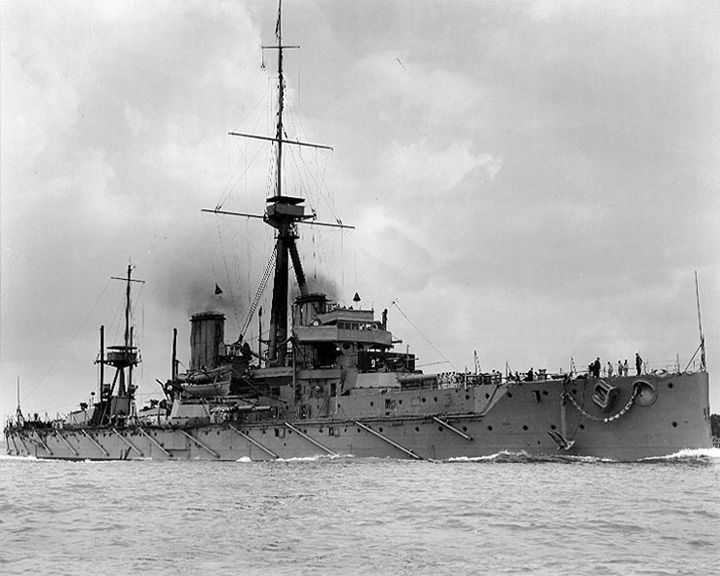 Dreadnought, HMS — British dreadnought battleship First "all-big-gun" armament and steam turbine propulsion. She revolutionized naval power and started a naval arms race. LAUNCHED: 1906, February 18 → FATE: Sold for scrap in 1923. |
 Empire Windrush, MV — German cruise ship captured by England in May of 1945 Carried 493 West Indian immigrants from Jamaica wishing to start a new life in the England on June 22, 1948. Before World War II, she was used for cruises by the Nazi Party to reward party members for services to the Party. Image shown is of sister-ship Empire Doon. LAUNCHED: 1930, December 18 → FATE: Sank in the Mediterranean Sea in March 30, 1954. |
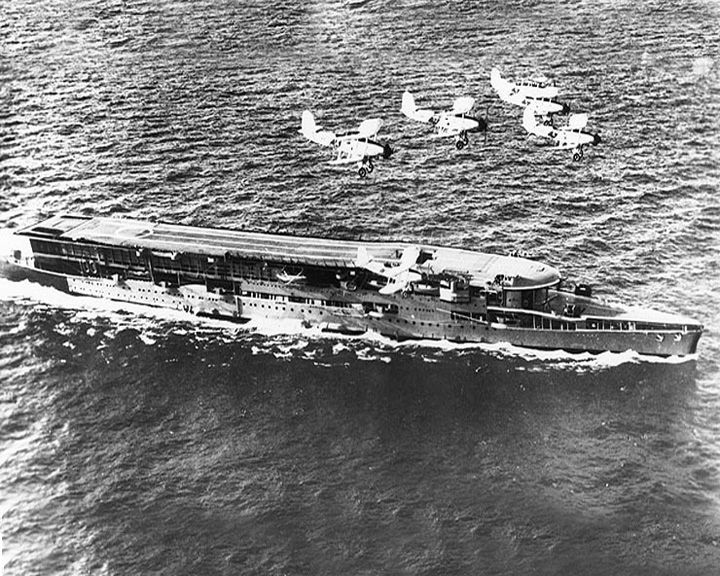 Furious, HMS — British battlecruiser (modified while under construction as an aircraft carrier) First aircraft carrier; her forward turret was removed and a flight deck was added in its place. Spent last of World War I and much of World War II as an aircraft ferry. LAUNCHED: 1916, August 18 → FATE: Sold for scrap in 1948. |
|
Page 3
|
 Hood, HMS — British battle cruiser Last battle cruiser built by Britain. Of the 1,418 aboard, only three men survived. LAUNCHED: 1918, August 18 → FATE: Sunk by the German battleship Bismarck at the Battle of the Denmark Strait May of 1941. |
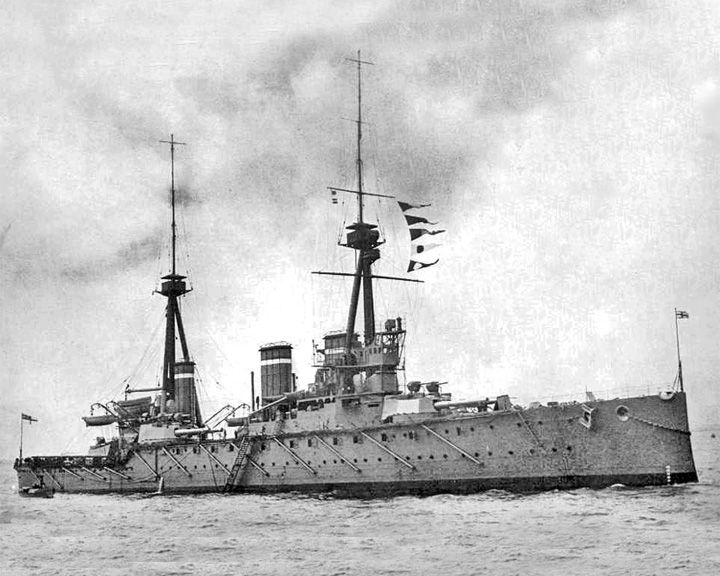 Invincible, HMS — British battlecruiser First battle cruiser to be built by any country in the world. She is one of seven ships named Invincible in the British navy from 1747 to the present. LAUNCHED: 1907, April 18 → FATE: Sunk by the German battleship SMS Lützow at the Battle of Jutland, May 31, 1916. |
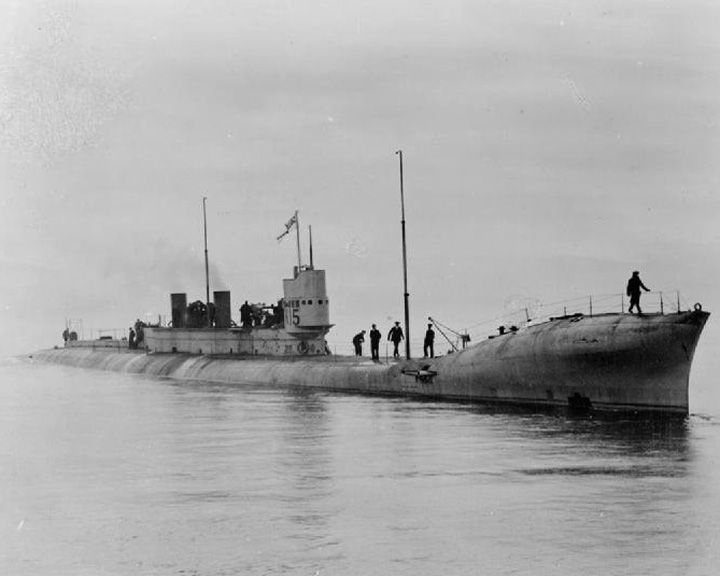 K-13 — British K-class submarine The first in the class of the steam-powered submarines. She sank in an accident during sea trials in early 1917 and was salvaged and recommissioned as HMS K22. 32 people died in the accident and 48 were rescued. LAUNCHED: 1916, November 11 → FATE: Sold for scrapping December 16, 1926 in Sunderland. |
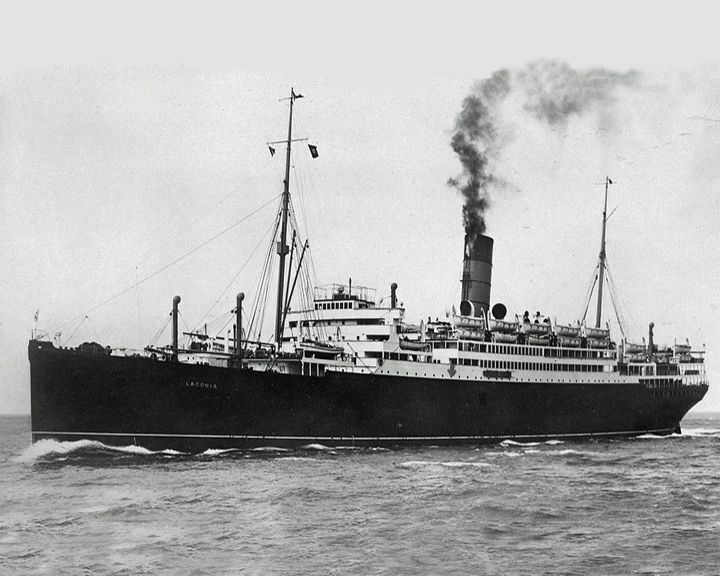 Laconia, RMS — British ocean liner, then converted to a troop ship After a torpedo attack, a dramatic rescue of the ship's passengers turned to disaster and became known as the Laconia incident. U.S. planes attacked the several German U-boats trying to rescue its 2,732 passengers and crew most of whom were abandoned by the subs, resulting in a loss of over 1,649 people. The sinking was portrayed in the 2011 British TV movie. LAUNCHED: 1921, April 18 → FATE: Sunk by German submarine U-156 off the coast of West Africa, September 12, 1942. |
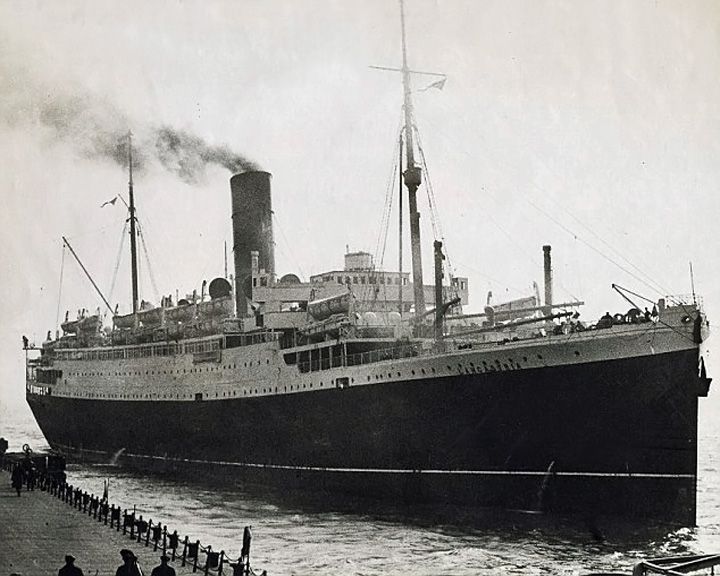 Lancastria, RMS — British ocean liner Worst single loss of life in British maritime history and the bloodiest single engagement for UK forces in World War II. Over 4000 people were lost while evacuating British nationals and troops from France. LAUNCHED: 1922, June → FATE: Sunk off the French port of St. Nazaireon June 17, 1940. |
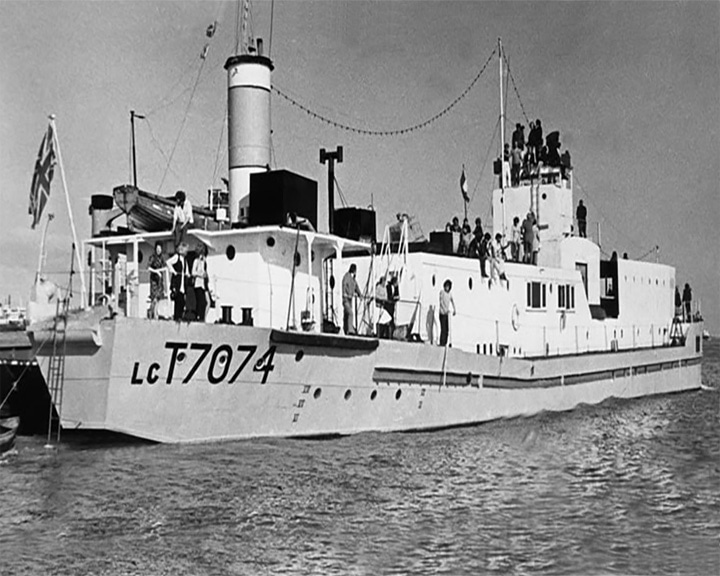 LCT7074, HM — British landing craft, tank (LCT) The last amphibious assault ship in the United Kingdom for landing tanks, other vehicles and troops on beachheads. De-commissioned in 1947 she was renamed Landfall and became the club ship for the Master Mariners’ Club of Liverpool. The craft was later converted into a riverfront nightclub. LAUNCHED: 1944, April 4 → FATE: Salvaged and restored by 2020, then moved to a permanent display at Portsmouth's The D-Day Story museum. |
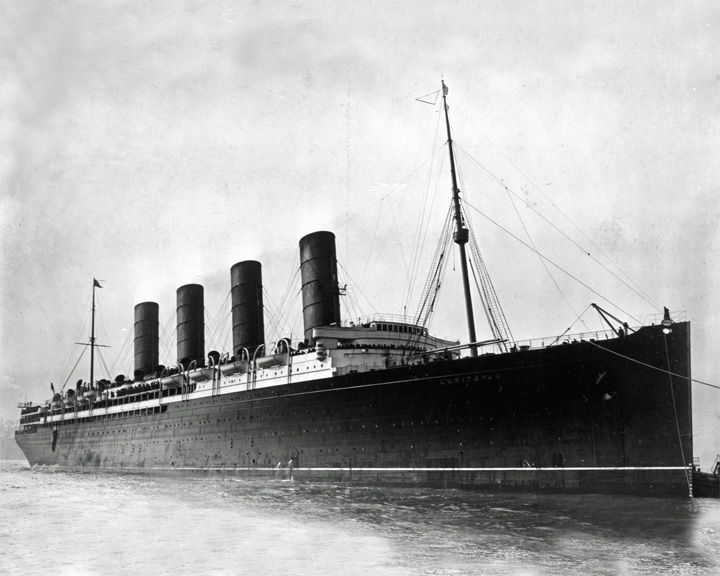 (Another (Another Lusitania, RMS — British ocean liner Torpedoed by German submarine U-20, killing 1,198 people. Her sinking during transatlantic passage turned public opinion against Germany in World War I. LAUNCHED: 1906, June 18 → FATE: Sank 70 kms from the Old Head of Kinsale May 7, 1915. |
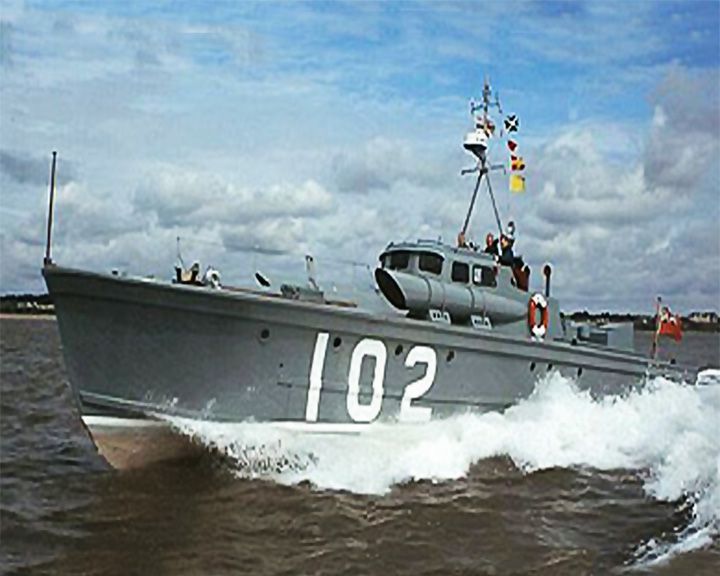 MTB 102 — British motor torpedo boat The the fastest wartime British naval vessel in service at 48 knots and the smallest vessel to ever serve as a flagship for the Royal Navy. In 1944 she carried Winston Churchill and General Eisenhower to review the fleet for Operation Overlord, the invasion of Normandy, World War II. She appeared as herself in the 2017 war film Dunkirk. LAUNCHED: 1937 → FATE: On exhibit at Lowestlft, on the North Sea. |
|
Page 4
|
 Orion, RMS — British ocean liner First to offer modern passenger comforts in ocean travel including air conditioning.. She was launched at England from Brisbane, Australia by wireless remote by the Duke of Gloucester. She served as a troop ship in World War II, then converted to a passenger liner in 1946. LAUNCHED: 1934, December 18 → FATE: Broken for scrap at Antwerp, Belgium in 1963. |
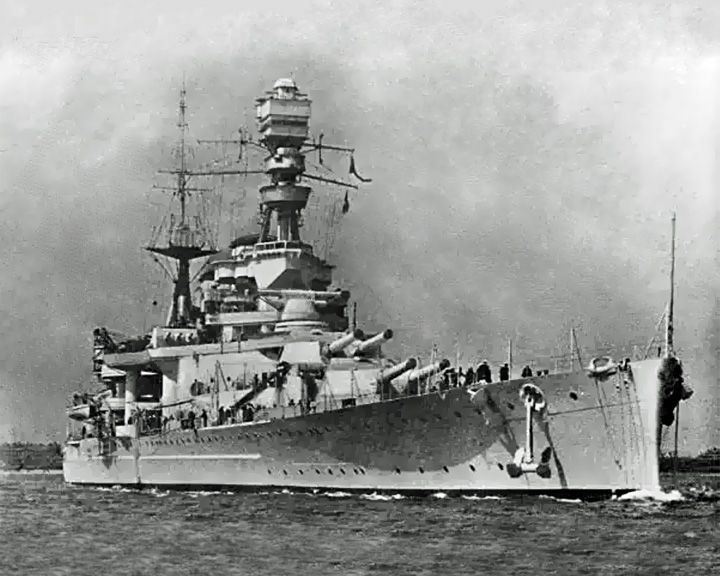 Prince of Wales, HMS — British battleship She and Repulse were the first capital ships to be sunk solely by naval air power on the open sea. She was involved in several key actions of the World War II, including the Battle of the Denmark Strait against the German battleship Bismarck. LAUNCHED: 1939, May 18 → FATE: Sunk on December 10, 1941 by Japanese air attack off Kuantan, South China Sea. |
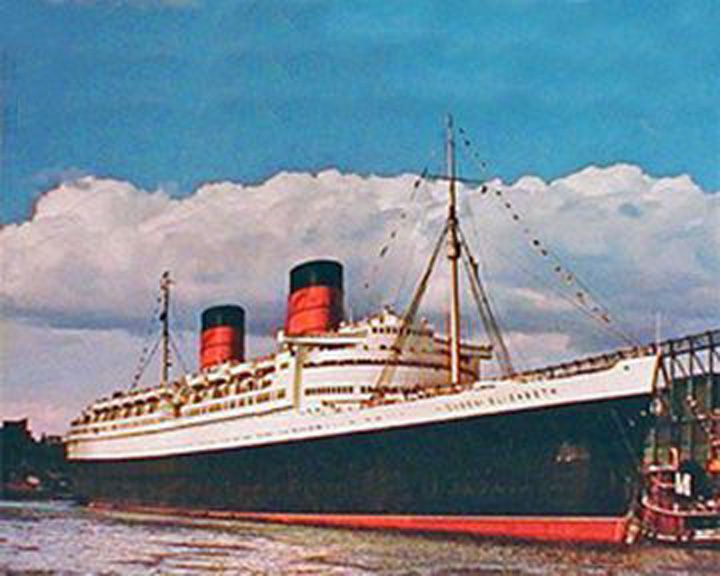 (Another (Another Queen Elizabeth, RMS — British ocean liner With sister ship Queen Mary, dominated the transatlantic passenger service. She was used in World War II as troop transport. After being converted to a university and renamed Seawise University, she was destroyed by fire. The charred wreck was featured in the 1974 James Bond movie The Man with the Golden Gun. LAUNCHED: 1938, September 18 → FATE: After a fire, capsized in Hong Kong Harbor, January 9, 1972. |
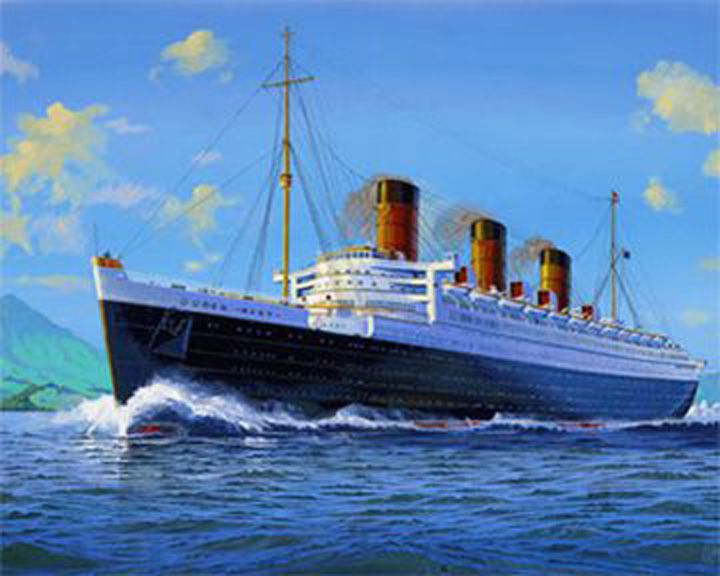 Queen Mary, RMS — British ocean liner Once dominated transatlantic passenger service with sister ship Queen Elizabeth. She was used in World War II as troop transport carrying up to 15,000 passengers at a time. Featured in the 1972 movie The Poseidon Adventure and the 1981 movie Goliath Awaits. LAUNCHED: 1934, Septmber 26 → FATE: After sailing nearly 4 million miles, she was retired in 1967 and berthed in Long Beach, California as a museum ship and hotel from 1974 to present. |
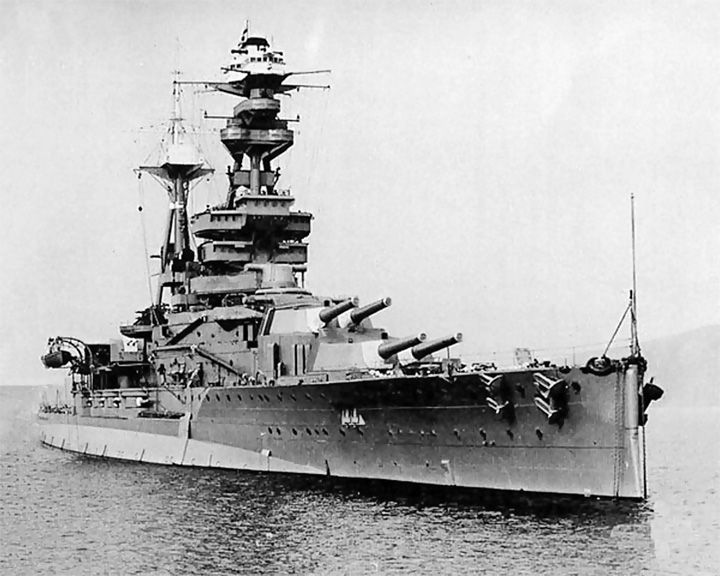 (Another (Another
Royal Oak, HMS — British Battleship, Revenge-class The first of five Royal Navy battleships and battlecruisers sunk in the World War II. When she was torpedoed, 835 of her 1,234 crew were killed. The brass letters of her name were removed from the sunken ship and are now displayed in the Scapa Flow visitor center. LAUNCHED: 1914, November 17 → FATE: Was sunk in Scapa Flow in October 1939 by a German U-boat, |
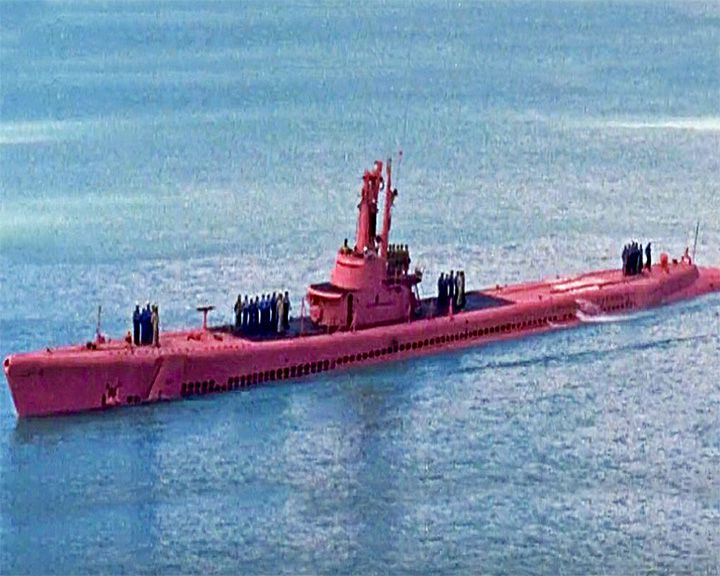 (Another (Another Sea Tiger, USS — American submarine A fictional U.S. Navy submarine in the 1959 movie Operation Petticoat during the opening days of World War II. Stand-in boats were USS Balao painted pink for exterior shots and USS Archerfish with the standard colors of gray and black for interior and some exterior shots. LAUNCHED: 1959 → FATE: Inconclusive. |
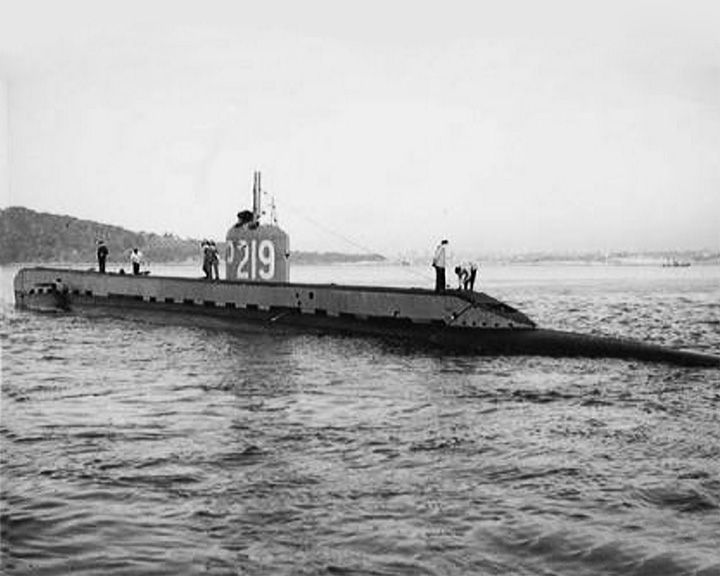 Seraph, HMS — British submarine Known as "the ship with two captains," briefly became the USS Seraph. During World War II, she released a corpse ("The Man Who Never Was") onto the shores off Gibraltar carrying decoy papers to fool the Nazis as part of "Operation Mincemeat." LAUNCHED: 1941, October 18 → FATE: Scrapped in December of 1962. |
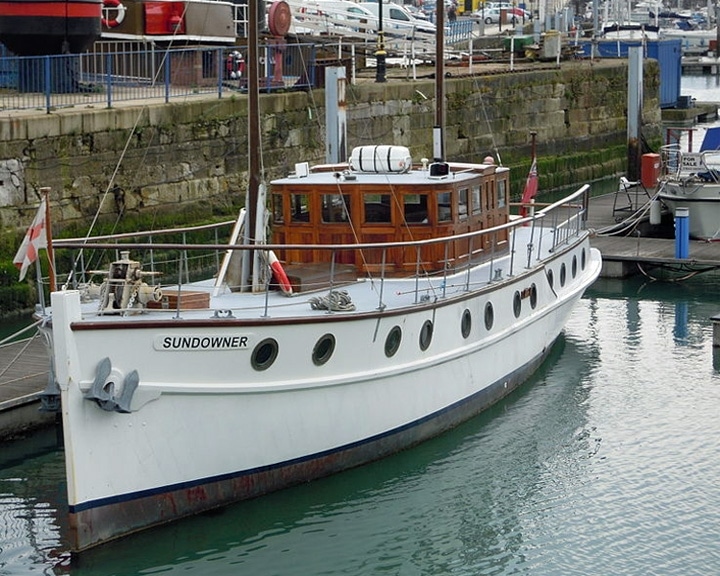 Sundowner — British motor yacht She participated in the Dunkirk evacuation as one of the "little ships" as well as a number of commemorations of the event. She was formerly owned by Charles Lightoller who was Second Officer aboard the ill-fated RMS Titanic and survived. LAUNCHED: 1912 → FATE: A museum ship at the Ramsgate Maritime Museum in Southern England. |
|
Page 5
|
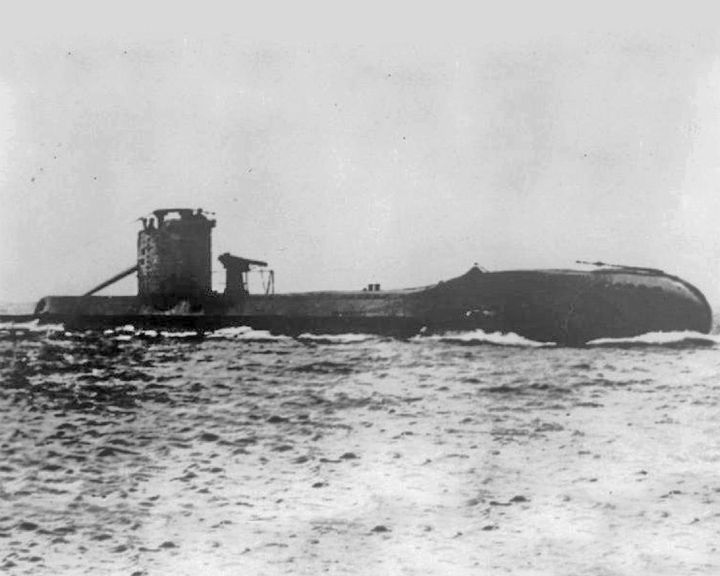 Upholder, HMS — British U-class submarine The most successful British submarine of the World War II sinking a gross tonnage of 93,031. She was one of four U-class submarines with 2 external torpedo tubes at the bows in addition to the 4 internal ones. LAUNCHED: 1940, July 8 → FATE: Lost northeast of Tripoli with all hands, probably sunk by enemy depth charges April 14, 1942. |
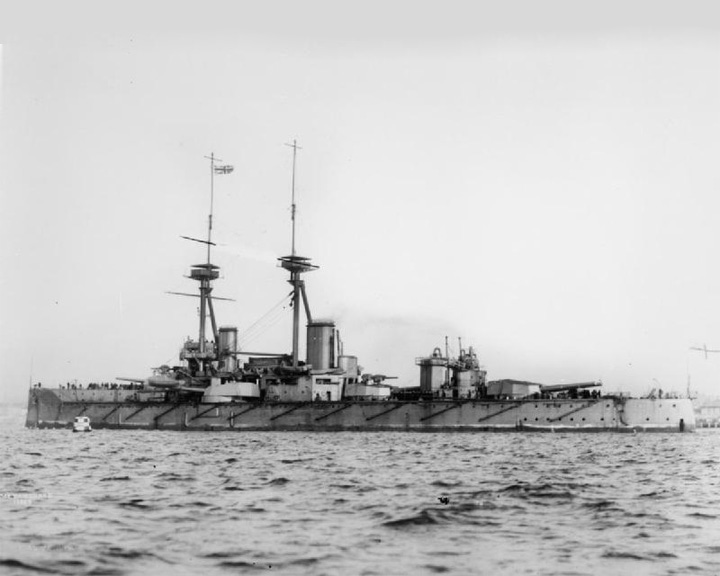 Vanguard, HMS (1909) — British St. Vincent class Dreadnaught She suffered a series of magazine explosions, sinking almost instantly, killing 843 of the 845 men aboard. Her captain coincidentally made a speech to the crew predicting the possible fate of the ship several hours before her sinking. Vanguard's wreck was heavily salvaged in search of non-ferrous metals before it was declared a war grave in 1984. Royal Navy divers placed a new Union Jack on the wreck. LAUNCHED: 1909, February 2 → FATE: Sunk by internal explosion at Scapa Flow, July 9, 1917. |
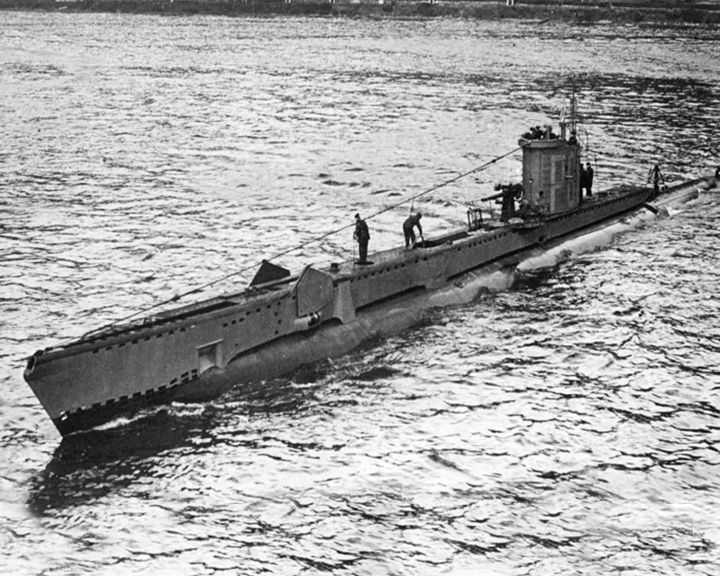 Venturer, HMS — British V-class submarine First time in naval warfare that one submarine stalked and sank another while both were submerged. Based on Enigma decrypts, she sought out and destroyed the German submarine U-864 in the Fedje area, February 9, 1945. LAUNCHED: 1943, May 4 → FATE: She was sold to Norway and renamed HNoMS Utstein. She was scrapped and broken up in 1964. |
The number of British/English Ships in World War I and II listed is 34 The contents of this page are available under the Creative Commons Attribution-Share Alike 3.0 Unported license and the GNU Free Documentation License (GFDL). |
|
|
First Ship on each page
| |
| Page | Ship Name (Country and Type) |
| 1. | Argus, HMS (British aircraft carrier) |
| 2. | Carpathia (British ocean liner) |
| 3. | Hood, HMS (British battle cruiser) |
| 4. | Orion, RMS (British ocean liner) |
| 5. | Upholder, HMS (British U-class submarine) |
British/English | |
| 1. | Argus, HMS British aircraft carrier |
| 2. | Asgard British yacht |
| 3. | Belfast, HMS British town-class cruiser |
| 4. | Britannic, HMHS British ocean liner |
| 5. | Calypso, RV American minesweeper |
| 6. | Campbeltown, HMS American Wickes-class destroyer |
| 7. | Carpathia British ocean liner |
| 8. | Cavalier, HMS British C-class Destroyer |
| 9. | City of Benares, SS British steam passenger ship |
| 10. | Compass Rose British Flower-class corvette |
| 11. | Curacoa, HMS British light-cruiser |
| 12. | Dreadnought, HMS British dreadnought battleship |
| 13. | Empire Windrush, MV German cruise ship |
| 14. | Furious, HMS British battlecruiser |
| 15. | Hood, HMS British battle cruiser |
| 16. | Invincible, HMS British battlecruiser |
| 17. | K-13 British K-class submarine |
| 18. | Laconia, RMS British ocean liner |
| 19. | Lancastria, RMS British ocean liner |
| 20. | LCT7074, HM British landing craft, tank (LCT) |
| 21. | Lusitania, RMS British ocean liner |
| 22. | MTB 102 British motor torpedo boat |
| 23. | Orion, RMS British ocean liner |
| 24. | Prince of Wales, HMS British battleship |
| 25. | Queen Elizabeth, RMS British ocean liner |
| 26. | Queen Mary, RMS British ocean liner |
| 27. | Royal Oak, HMS British Battleship |
| 28. | Sea Tiger, USS American submarine |
| 29. | Seraph, HMS British submarine |
| 30. | Sundowner British motor yacht |
| 31. | Upholder, HMS British U-class submarine |
| 32. | Vanguard, HMS (1909) British St. Vincent class Dreadnaught |
| 33. | Venturer, HMS British V-class submarine |
|
About the Data There are more than 400 ships in this database, but the initial list is only for famous ships names that begin with letters "A-B". For other listings, use the country and type tabs. Touching (or cursor over) a ship image produces an enlargement. Touch anywhere else (or move the cursor off the image) to close the larger image. Touching (or clicking on) any underlined name will link to a page with more information. Although submarines are usually called boats, they are grouped with ships here. Most of the information comes from Wikipedia. |
^
Other Pages in Names Galore: | |
Famous Cowboy Names Sports Team Names Other Name Lists | Name Generators Naming Fun Stories about Names |